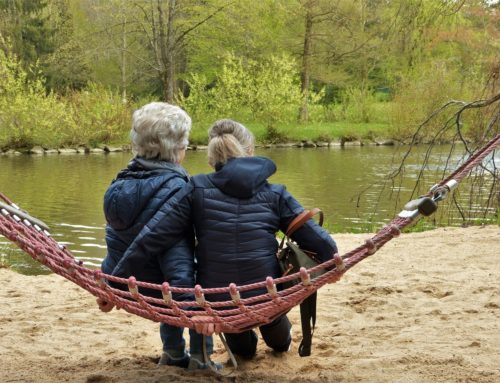Aging, Driving & Dementia
Driving is a privilege. We are basically driving a loaded weapon and it’s our responsibility to ensure we can operate it. I encourage candid conversations with people about this subject. We don’t often address how it’s a privilege, especially as we age. I make it a point to discuss this topic as often as the opportunity presents itself to me. As we age we are not as good of drivers because aging affects our motor skills, vision, reaction time, emotional responses, and the list grows as we age. Prevention of accidents and death is the responsibility of the privilege of driving.
Address Things Immediately and Revisit Often
Over the years of consulting with clients, I have witnessed them risk and/or lose their family, homes, fortunes, and assets for negligent and/or criminal driving. I share two stories that I hope will change the importance this issue plays in your family. After one of my speaking engagements, a woman approached me with the story of her great aunt in her 90’s with full capacity (no dementia) that lived in a very rural, small town, where she had tried several times to pass a drivers test. Shortly after being able to renew her license she was still driving “just right down the road” to the store and back home. On one of those short trips down the road, she had an “at fault” accident and the other person was killed. She lived to be almost hundred and had to live with her consequences while the other family has to grieve their loss.
You Can Loose More than Peace-of-Mind
The second story is one of an exceptionally wealthy senior married couple that hired me for writing, storytelling, and computer work. The husband was involved in many vehicular accidents and had great insurance for a time. Long story short, the family avoided conversations, didn’t create a plan and never realized the problem in real terms. Someone should have done things to protect him, their assets and the other drivers. When you end up with multiple lawsuits that have exceeded any insurance payouts and, if there is vehicular negligence, there are going to be many consequences.
There are many instances in which had someone intervened in these examples lives could have been saved, property protected and assets retained for their family. Both these stories validate the importance of having conversations, creating a journal to document conversations and the plan.
Below are simple steps to help take the keys away or get your loved ones to stop driving:
Start Aging Conversations and Do Research
I suggest that you begin conversations with your aging loved-ones very casually with them agreeing that one should give up their right to drive when given a diagnosis or if their age impedes them. Do your research before, during, and after you start these conversations. Alzheimer’s Association’s Paper on Driving and Dementia is a very good starting point.
Have Empathy and be Kind
It’s imperative to have empathy and understand that this is the person’s last vestige of freedom and independence. Please practice your conversations. Invite their loved ones, spiritual advisors, whomever the person trusts and include them in the process. Know your audience and find the avenue to reach them.
Create A Plan
Initiate the conversations as early as possible because you are getting your loved-one to buy into the reasons one would have to give up their keys. A plan is the best avenue to facilitate this very serious situation. Hartford & the MIT AgeLab created Crossroads which is an excellent resource for how to:
- Identify and Document Unsafe Driving. Follow your loved one while they are driving and document all unsafe driving reports from their neighbors.
- Engage loved ones in this plan. Assign drivers to accommodate all the outings of the loved one not driving. The plan must be inclusive of the loved one’s lifestyle.
- Elder Abuse is a very real concern. Who has access to your senior loved ones? When you see something, say something. Hire a company and do your due diligence/vet everyone. Family members abuse family.
- Transportation is one of the biggest concerns when trying to keep up with your loved one’s lifestyle. This article on Social Capital (Berkley Education Article) emphasizes the importance of socialization for seniors. It is your responsibility to vet your vendors and family.
- Create your plan to include online shared calendars, email, and written ones for those that may not use computers. I’ve always said that “Communication and Compromise are my best tools.”
Manage and Monitor the Plan
Manage the plan with regular visits, communication between participants and adjusting things as they change and when agreed upon with the group. Always make unannounced visits, even when using a transportation company. Follow them without telling the company. See how they treat your loved one.
Dementia and Driving
Everyone should refer to his or her state DMV for specific laws. The reality is with a Dementia and/or an Alzheimer diagnosis the person will forfeit their privilege to drive at some point. Make the most of each day and do this by having candid, fact-based conversations with solutions on the table.
Lastly….
I know it will be difficult when I have to stop driving. I love to drive and I’ve driven across the US a couple of times. I’m also grateful that I’ve gone through helping families take the keys away or convince someone it’s time to give up the keys because it gives me perspective. There is so much living to do as we age and if we can have open conversations while addressing how aging will affect us, we can live an easier life.
Let’s embrace what we can, change what we must, and have fun with rest as we move forward through life!
#AgingDementiaDriving #AgingDriving #AlzheimersDriving






Leave a Reply